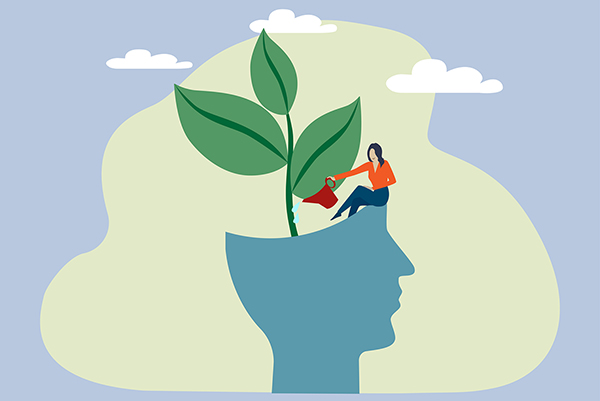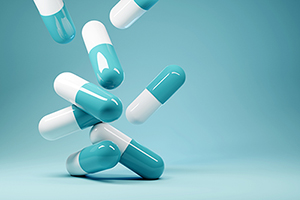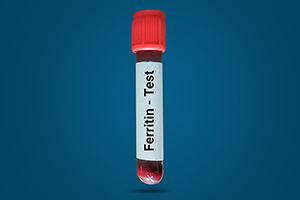



| By Celine Torres-Moon

—Dr. Ronald Hoffman
This article contains content from one of our trusted sponsors.
Brain health is an important part of our overall health.* In a world where the brain is consistently bombarded by external stimuli, maintaining its normal function is of the utmost importance. Dietary supplements are a wonderful way to help support brain health.* There is a plethora of botanicals and nutrients that help to nourish the brain; here, we will discuss a few well-studied ones that have demonstrated their ability to support brain health.*
We will start with curcumin because of its long history of presence in the diet, mainly in Asian cultures where turmeric is used as a spice in the daily diet and by traditional herbalists for a wide variety of conditions.* In the scientific community, this extensive traditional use has triggered a lot of interest around understanding how this compound functions in the body and how it can support health.
From the extensive research on curcumin done worldwide over the past fifty years, some clear facts have emerged. In laboratory tests, curcumin exhibits powerful free-radical scavenging properties and helps regulate various transcription factorsł, growth factors, enzymes, etc.* However, researchers have also discovered that the human body is not very good at delivering free, un-metabolized curcumin to different organs and to the brain. Indeed, curcumin is insoluble in water and undergoes rapid glucuronidation and sulfation in the small intestine and liver after oral ingestion. Because of this, scientists have been compelled to look for clever ways to increase the body’s ability to deliver curcumin to the body’s organs. One of these innovative techniques, developed by Verdure Sciences Inc., consists of creating a micro-emulsion made of soluble curcumin-lipid micelles called Solid Lipid Curcumin Particles (SLCP™). SLCP™ uses soy lecithin and a turmeric ethanol extract to create a finished product containing at least 20% curcuminoids, which is marketed under the trade name Longvida® Optimized Curcumin. The increased bioavailability of curcumin using SLCP™ technology was confirmed in a clinical study wherein significant plasma concentrations (Cmax: 22 ng/mL) of free curcumin were detected after ingestion of 650 mg of this unique curcumin product. In the same study, ingestion of a turmeric extract standardized to 95% curcuminoids did not result in any measurable free curcumin in the plasma.1
Preclinical data have confirmed that in addition to its superior bioavailability, SLCP™ are able to penetrate the blood-brain barrier, which is an indispensable property for a product that exerts its function in the central nervous system.* These unique pharmacological properties translate into a real clinical effect on cognitive function as demonstrated in a clinical study.* In this 4-week randomized, double-blind, placebo-controlled trial, healthy elderly volunteers receiving 400 mg Longvida® Optimized Curcumin, with approximately 80 mg curcumin in a SLCP™ formulation, were evaluated before and after supplementation using standardized tests measuring cognitive function with a Computerized Mental Performance Assessment System on items such as immediate and delayed word recall, reaction time, rapid visual information processing, subtractions, and delayed picture recognition. Volunteers in the Longvida® group significantly improved performance on sustained attention and working memory tasks as compared with placebo.2,3*
Another nutrient important for brain health is Magnesium (Mg). In the brain, Mg is involved in dopamine and serotonin release, synaptic plasticity, regulation of neuronal synaptic density, inhibition of the excitatory neurotransmitter glutamate via its effects on N-methyl-D-aspartate (NMDA) receptor activity, and is an agonist of GABAA receptor activity.*
Magnesium homeostasis in the body is tightly regulated and magnesium is handled differently in the central nervous system than in the rest of the body. Therefore, when selecting a magnesium supplement for brain health, it is important to choose a form that reaches the brain in significant amounts. Magnesium L-threonate (Magtein®) is a form of magnesium that crosses the blood-brain barrier and is readily utilized in the brain.* Additional laboratory studies and clinical studies have shown that that Magnesium L-Threonate may support healthy cognitive function, learning, and memory, and may promote a relaxed mood.4-9*
Other nutrients have been explored for their brain health supporting properties; among them, choline, glutamine, and phosphatidylserine (PS) stand out.* Choline is an essential nutrient that is a source of methyl groups needed for many steps of cellular metabolism.* The body needs choline to synthesize phosphatidylcholine and sphingomyelin, two major phospholipids (types of fats) that are vital for cell membranes, especially in the central nervous system.* Choline is also needed to produce acetylcholine, an important neurotransmitter for memory, mood, muscle control, and other brain and nervous system functions.* Choline also plays important roles in modulating gene expression, cell membrane signaling, lipid transport and metabolism, and early brain development.10-12*
Glutamine is the most abundant free amino acid in the body and is involved in many major biological functions including regulation of glucose homeostasis, immune function, intestinal cell protection, that will not be detailed here.* In the nervous system, glutamine is abundant, both in brain tissue and in CSF. Glutamine, via the glutamate-glutamine cycle, contributes to glutamate and GABA synthesis, it also serves as an energy source in the brain.* Laboratory studies suggest that glutamine supplementation could support normal brain function in situations of stress by regulating oxidative stress damage and stress-induced glucocorticoid production.13,14*
Phosphatidylserine is a major phospholipid that is naturally present in brain cell membranes, where it helps with cell membrane fluidity, cell metabolism, and can modulate specific neurotransmitter systems.* Clinical studies suggest that supplementing the diet with PS may support brain functions, especially those functions that tend to normally decline with age, including memory, learning, and concentration.15-18*
A number of key botanicals have been extensively studied for their ability to support brain health.* Among them, Ginkgo biloba is probably the most ancient and best explored. Ginkgo leaf extract abounds in bioactive compounds such as ginkgoflavonglycosides and ginkgolides; it also has flavonoids such as quercetin and kaempferol. Ginkgo biloba leaf extract may act through a combination of mechanisms including free radical scavenging effects, modulation of platelet aggregation, modification of cellular membrane fluidity, support of capillary structure, enhancement of cerebral blood flow, support of brain energy metabolism, and reduction of glucocorticoid synthesis.* Clinically, Ginkgo biloba may support memory retention and mental clarity.19-23*
Huperzia serrata is a plant belonging to the Huperziaceae family commonly known as firmosses or fir clubmosses. The biochemical properties ascribed to H. serrata are mainly due to its biologically active Lycopodium alkaloids. Many of these alkaloid compounds, including the most researched, huperzine A (hup A), have shown in laboratory settings, their ability of inhibit the activity of the enzyme acetyl choline esterase (AchE).* In laboratory experiments, other compounds isolated from Huperzia serrata have been found to be antagonists of the N-methyl-D-aspartate (NMDA) receptors.* By blocking AchE, hup A enhances cholinergic neurotransmission mainly in the basal forebrain and in brain regions that are involved in learning and memory.24* The effect of capsules containing hup A, on memory and learning performance in adolescent students was investigated using a double-blind randomized trial. Thirty-four pairs of middle school students complaining of memory inadequacy were divided into 2 groups: one received 2 capsules (each containing 50 µg) twice daily for 4 weeks; the other group received a placebo. At the end of trial, the huperzine A-treated group’s memory quotient (115 ± 6) was higher than that of the placebo group (104 ± 9).* Test scores following a language lesson were elevated in the huperzine A group compared with the control.* These results suggest that huperzine A enhances memory and learning performance.25*
Gotu kola, also known as Centella asiatica, is a plant used in traditional Chinese and Ayurveda herbalism. Triterpenoids are the main bioactive constituents of Centella asiatica. In animal studies, C. asiatica supplementation helped support animal cognitive function, improved spatial learning performance, and enhanced memory retention.* C. asiatica has also been evaluated in randomized clinical trials; these studies suggest that it may support working memory, attention, concentration, executive function, and information processing speed.* However, these results are preliminary and would require confirmation in future well-designed clinical trials.26
As stated above, the maintenance of brain health is a crucial part of maintaining overall health. Our brain physiology is extremely complex, and one of our body’s main purposes is to maintain normal brain function.* However, as we age and are constantly bombarded by external stimuli that strain our natural brain defense systems dietary supplements can be a great tool to give our brain the support it needs to function at its full potential.* Magnesium L-threonate, choline, Longvida® Optimized Curcumin, Ginkgo biloba, Huperzia serrata, gotu kola are some of the best studied dietary ingredients that can help nourish your brain so it can function at optimal levels for a very long time.*
Protocol For Life Balance®, a brand of high quality dietary supplements, offers several supplements that help nourish the brain.* Magtein®, Cogumin SLCP™, and award-winning Brain Regain™ feature the ingredients detailed in this article. In 2021 and 2022, Brain Regain™ won the Natural Practitioner™ magazine Practitioner’s Choice Award for the brain health category. This award is particularly significant because it is decided by healthcare practitioners. Other brain nourishing ingredients recommended by Protocol For Life Balance® are L-Tryptophan, 5-HTP from Griffonia simplicifolia, GABA, L-Dopa from Mucuna seeds, and L-Theanine.* Protocol For Life Balance® also has an extensive line of products useful for sleep, mood, and temporary stress support such as Adrenal Cortisol Support™, Clinical Stress Relief with Lactium®, Melatonin, Myo-Inositol, SAMe, and Sceletium extract as Zembrin®.*
ł Transcription factors: proteins that turn on and off gene expressions within cells.
*These statements have not been evaluated by the Food Drug Administration. These products are not intended to diagnose, treat, cure, or prevent any disease.
References:
Though we think of declining estrogen as the hallmark of menopause, it's actually common for…

Up to 12 percent of Americans have ulcers at some point in life. Peptic ulcers…
Gallbladder disease is a modern illness. An estimated 20 million Americans have gallbladder disease. The…

It seems not a week goes by that we’re not regaled with news of a…

Last week, I discussed possible reasons for low ferritin levels. As with most blood tests,…

I just returned from a dive trip to Turks and Caicos and wanted to share…

ENCORE: Factors That Affect Fertility, Part 1

Our virtual voicemail is open 24/7, so there's no need to wait to submit your questions for Dr. Hoffman. Leave a message, and you may hear your question featured on the Intelligent Medicine radio program!